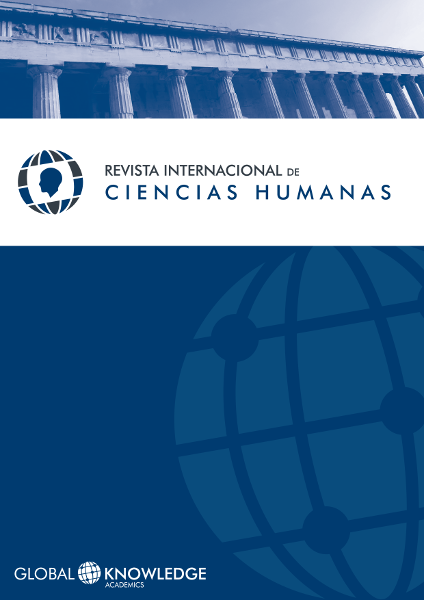A New Philosophy of Communication: Agenda-Setting 2.0
DOI:
https://doi.org/10.37467/gka-revhuman.v6.2794Keywords:
Agenda-Setting, Citizen Journalism, Emotions, Mass Media, Philosophy of Communication, Public Opinion, Second ScreenAbstract
The philosophy of communication of the 20th century accepted, in general terms, the agenda-setting theory proposed by McCombs and Shaw (1972). This theory underlined the capacity of the mass media to shape the understanding that the general public has of social reality (Wolf, 1987). However, the Internet and social networks have radically changed the landscape, since the traditional mainstream media are now in tow of what is trending-topic on the social media. This article points out the need to develop a new philosophy of communication, adapted to the existence of a new technological and social framework, which will redefine the patterns and factors that currently shape the public agenda (agenda-setting 2.0).
References
Abajo, C. (2017). “Un ojo en la TV y otro en el móvil”. Cinco Días (12 junio 2017), http://cincodias.elpais.com/cincodias/2017/02/22/empresas/1487724400_573523.html.
Anderson, C. (2004). “The Long Tail”, Wired, https://www.wired.com/2004/10/tail/.
Anderson, C. (2006). The Long Tail: Why the Future of Business is Selling Less of More. Hyperion.
Bernays, E. (1928). Propaganda. Horace Liveright, New York.
Brown, J. A. C. (1961). Freud and the Post-Freudians. Penguin Books Ltd., Harmondsworth, Middlesex, England.
Coughlan, S. (2017). “Qué es la ‘posverdad’, el concepto que puso de moda el ‘estilo Trump’ en Estados Unidos”, BBC News (12 enero 2017), https://www.bbc.com/mundo/noticias-internacional-38594515.
Curtis, A. (2002). The Century of the Self. British Broadcasting Corporation (BBC), Documental, https://vimeo.com/95699538.
Elías, C. (2008). La razón estrangulada: la crisis de la ciencia en la sociedad contemporánea. Debate, Barcelona.
Elías, C. (2013). “Contraconocimiento y pandemias de credulidad en la Sociedad Red: el papel del periodismo en la búsqueda de la verdad en los entornos digitales”, Estudios sobre el Mensaje Periodístico, 19 (2), pp. 667-681.
Ferrés i Prats, J. (2014). Las pantallas y el cerebro emocional. Gedisa, Barcelona.
Hatalska, N. (2012). “CocaCola China - Chok! Chok! Chock!”, YouTube (2 julio 2012), https://youtu.be/pEDsERv-rFA.
Jarvis, J. (2014). El fin de los medios de comunicación de masas. ¿Cómo serán las noticias del futuro? Gestión 2000, Barcelona.
Johnson, T. J. (ed.) (2014). Agenda setting in 2.0 world: new agenda in communication. Routledge, New York.
Klein, N. (2000). No logo: el poder de las marcas. Ediciones Paidós Ibérica, Barcelona.
LeDoux, J. (1999). El cerebro emocional. Planeta, Barcelona.
Leiner, B. M., V. G. Cerf, D. D. Clark, R. E. Kahn, L. Kleinrock, D. C. Lynch, J. Postel, L. G. Roberts, S. Wolff (1997). “Breve historia de Internet”, Internet Society, https://www.internetsociety.org/es/internet/history-internet/brief-history-internet/.
Lindstrom, M. (2011). Así se manipula al consumidor. Gestión 2000, Barcelona.
Lippmann, W. (1922). Public Opinion. Harcourt, Brace & Co.
Mayer-Schönberger, V. & K. Cukier (2013). Big Data: A Revolution That Will Transform How We Live, Work, and Think. Houghton Mifflin Harcourt, Boston, MA.
McCombs, M. E. (1996). “Influencia de las noticias sobre nuestras imágenes del mundo”. En Bryant, J. y D. Zillmann (1996), Los efectos de los medios de comunicación: investigaciones y teorías (pp. 13-34). Paidos, Barcelona.
McCombs, M. E. & D. L. Shaw (1972). “The Agenda-Setting Function of Mass-Media”, Public Opinion Quarterly, 36 (2), pp. 176-187, https://doi.org/10.1086%2F267990.
McQuail, D. (2010). McQuail´s Mass Communication Theory (6th edition). Sage, London.
Naciones Unidas (1948). “Declaración Universal de Derechos Humanos”, Naciones Unidas, https://www.un.org/es/universal-declaration-human-rights/
Preston, P. (2016). “Citizen Journalism? Nothing new about that”. The Guardian (27 noviembre 2016), https://www.theguardian.com/media/2016/nov/27/newsquest-croydon-guardian-reader-stories.
Smart, B. (2010). Consumer Society: Critical Issues & Environmental Consequences. Sage, London.
Shaw, E. (1979). “Agenda-Setting and Mass Communication Theory”, International Communication Gazette, XXV (2), pp. 96-105, https://doi.org/10.1177/001654927902500203.
Thompson, D. (2009). Los nuevos charlatanes. Crítica, Barcelona.
Toffler, A. (1980). The Third Wave: The classic study of tomorrow. Bantam, New York.
Wolf, M. (1987). La investigación de la comunicación de masas. Ediciones Paidós Ibérica, Barcelona.
Downloads
Published
How to Cite
Issue
Section
License
Those authors who publish in this journal accept the following terms:
- Authors will keep the moral right of the work and they will transfer the commercial rights.
- After 1 year from publication, the work shall thereafter be open access online on our website, but will retain copyright.
- In the event that the authors wish to assign an Creative Commons (CC) license, they may request it by writing to publishing@eagora.org









